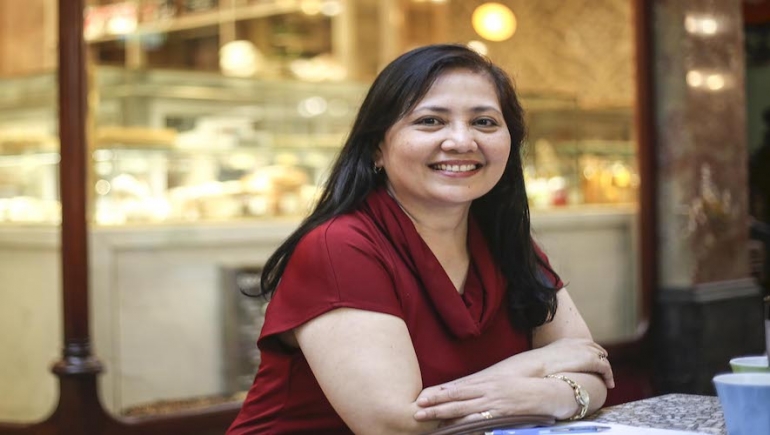Commissioner to the Philippines Human Rights Commission, Karen Gomez-Dumpit, has described her country at a crossroads, where it faces an unprecedented number of violations, and an environment where the very concept of human rights is under attack.
“Once touted as the bastion of democracy in Asia, the Philippines finds itself in a dire predicament,” Ms Gomez-Dumpit told an audience at UNSW Sydney.
“We are at a crossroads on human rights promotion and protection.”
The short sighted “war on drugs”
Since President Rodrigo Duterte was elected on an anti-drugs platform almost two years ago, various human rights groups report up to 20,000 people killed in the government’s war on drugs.
Within the first six months of the administration, the number of casualties had already eclipsed the number of deaths in the first years of martial law.
At the same time, human rights defenders and the Commission itself have been subjected to constant attacks from the Duterte administration and the media, and a “troll army” patrols social media to smother citizens’ criticisms of government policy.
Ms Gomez-Dumpit said a major challenge for the administration of the “one policy president” was to come up with long-term solutions to drug addiction, which treat it as a serious health issue, and offer rehabilitation and alternatives to incarceration.
Fears the death penalty will return
The Duterte administration is also claiming that re-introducing the death penalty would help combat crime in the Philippines.
Despite an outcry from civil society groups, a super–majority in the House of Representatives passed a version of the bill to reinstate capital punishment, which was abolished in the Philippines in 2006 and by the 1987 Constitution.
A new study by the Commission and Dr Christopher Ward of the Australian National University found the country would violate its obligations under international law by re-instating the death penalty.
The ratification of the Second Optional Protocol to the International Covenant on Civil and Political Rights (ICCPR) by the Philippines in 2007, 20 years after the passage of the Constitution, is a valid sovereign act of the Philippines.
The Second Optional Protocol permanently prohibits the imposition of the death penalty in the Philippines for all crimes.
There is breathing space in the issue now, as the bill is at an impasse in the Senate. However, Ms Gomez-Dumpit warned the return of the death penalty was not a “farfetched” possibility.
Duterte has little regard for international law, as illustrated by his regular verbal tirades against UN chiefs and rapporteurs, and his latest moves to exit from the International Criminal Court, which has started a probe into the extra-judicial killings.
President’s popularity remains high
Asked why would the Filipino people still support the President despite the human rights crisis in the country, the Commissioner explained that failures of the past administrations have translated into a protest vote.
This was fuelled by the frustration and anger towards inequitable wealth despite tremendous growth, a fractious and damaged justice system coupled with the absence of public education about good governance, civic action and human rights.
The President's popularity ratings, despite deaths surrounding the drug war, have remained high. However, many interpret this support and trust for the President as support for the campaign against criminality.
As for the trust ratings, people believe that the President has political will, meaning that when he says something, without distinguishing good or ill will, he is determined to do it.
Making human rights ’real’ to everyone
With the public besieged by propaganda and fake news, the role of the Commission becomes ever more relevant, and so too, the role of public education and the media.
The Commissioner said a challenge for all advocates is to bring human rights down from an abstract level and communicate what they mean to people in everyday life.
It is also important to be active on the platforms where misinformation is thriving, like social media, but also in schools and traditional media.
“The only way forward is to push back, to push back with justice reforms, to push back with inclusive growth and push back with facts.”
